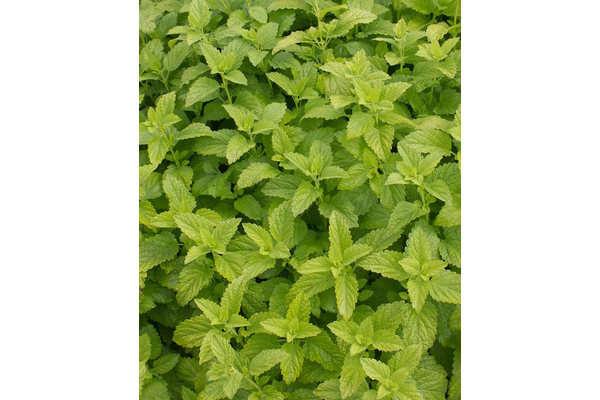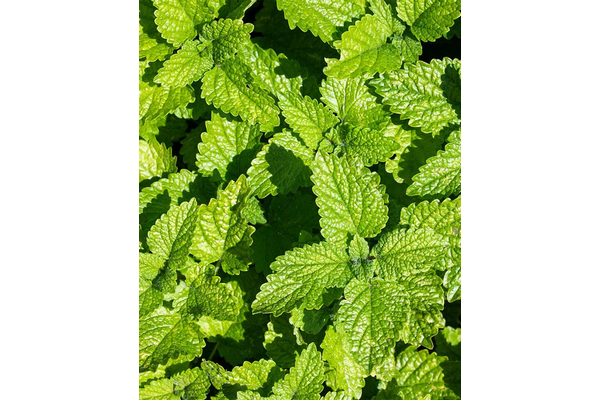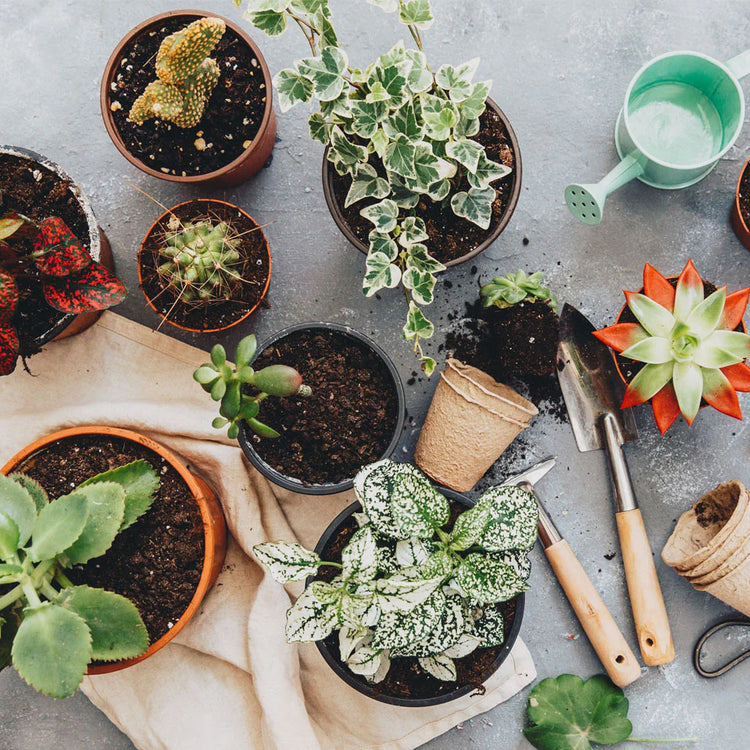



Cultivate the invigorating West Coast Seeds - Lemon Balm (Melissa officinalis) in your organic herb garden. This herbaceous perennial is loved for its light green leaves that release a sudden hit of lemon scent when rubbed, making it perfect for bouquets or brewing a refreshing medicinal tea. Lemon Balm self-sows and attracts bees, growing vigorously and providing a deer-resistant option for coastal areas. To manage growth and promote new leaves, chop back the plants by two thirds once the flowers have faded. A staple in medicinal gardens for centuries, Lemon Balm is easy to grow and maintain.
Key Features:
- Aromatic Leaves: Light green leaves with a fresh lemon scent.
- Versatile Use: Ideal for bouquets, lemon-scented rooms, and brewing medicinal tea.
- Bee-Friendly: Attracts bees, enhancing pollination in your garden.
- Deer Resistant: Useful as a filler plant in coastal areas.
- Vigorous Growth: Keep self-sown seedlings thinned out for best results.
Growing Information:
- Season & Zone: Cool season, hardy to Zone 5. Suitable for sun or part-shade.
- Timing: Start indoors 6-8 weeks before the last frost. Transplant out or direct sow once daytime temperatures are steadily above 10°C (50°F).
Planting Instructions:
- Starting: Barely cover the tiny seeds using sterilized potting soil. Water minimally, just enough to keep the medium from drying out. Germination takes 10-14 days. Transplant at a spacing of 45cm (18") into the garden.
- Growing: Choose a shady spot or a location protected from midday sun. Lemon balm prefers fertile, moist soil in cooler parts of the garden. Plants grown in partial shade will be larger and more succulent than those in full sun.
Harvesting Tips:
- Leaves: Pick leaves throughout the summer for fresh use. Note that the aroma is rapidly lost when dried or stored.
Add West Coast Seeds - Lemon Balm to your herb garden for a refreshing, aromatic herb that’s easy to grow and beneficial for both you and your garden's pollinators. Enjoy the delightful scent and versatile uses of this ancient medicinal plant.
Selected page contains no content. Add content to this page in the page editor.
Cultivate the invigorating West Coast Seeds - Lemon Balm (Melissa officinalis) in your organic herb garden. This herbaceous perennial is loved for its light green leaves that release a sudden hit of lemon scent when rubbed, making it perfect for bouquets or brewing a refreshing medicinal tea. Lemon Balm self-sows and attracts bees, growing vigorously and providing a deer-resistant option for coastal areas. To manage growth and promote new leaves, chop back the plants by two thirds once the flowers have faded. A staple in medicinal gardens for centuries, Lemon Balm is easy to grow and maintain.
Key Features:
- Aromatic Leaves: Light green leaves with a fresh lemon scent.
- Versatile Use: Ideal for bouquets, lemon-scented rooms, and brewing medicinal tea.
- Bee-Friendly: Attracts bees, enhancing pollination in your garden.
- Deer Resistant: Useful as a filler plant in coastal areas.
- Vigorous Growth: Keep self-sown seedlings thinned out for best results.
Growing Information:
- Season & Zone: Cool season, hardy to Zone 5. Suitable for sun or part-shade.
- Timing: Start indoors 6-8 weeks before the last frost. Transplant out or direct sow once daytime temperatures are steadily above 10°C (50°F).
Planting Instructions:
- Starting: Barely cover the tiny seeds using sterilized potting soil. Water minimally, just enough to keep the medium from drying out. Germination takes 10-14 days. Transplant at a spacing of 45cm (18") into the garden.
- Growing: Choose a shady spot or a location protected from midday sun. Lemon balm prefers fertile, moist soil in cooler parts of the garden. Plants grown in partial shade will be larger and more succulent than those in full sun.
Harvesting Tips:
- Leaves: Pick leaves throughout the summer for fresh use. Note that the aroma is rapidly lost when dried or stored.
Add West Coast Seeds - Lemon Balm to your herb garden for a refreshing, aromatic herb that’s easy to grow and beneficial for both you and your garden's pollinators. Enjoy the delightful scent and versatile uses of this ancient medicinal plant.
Selected page contains no content. Add content to this page in the page editor.





